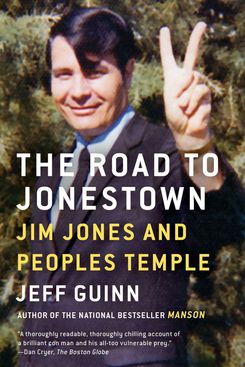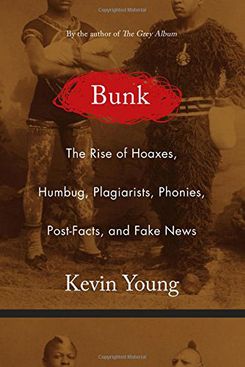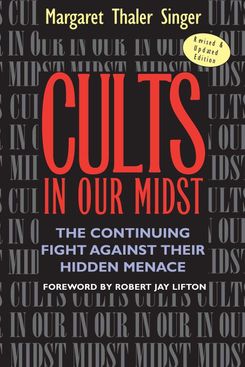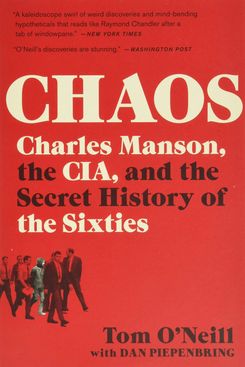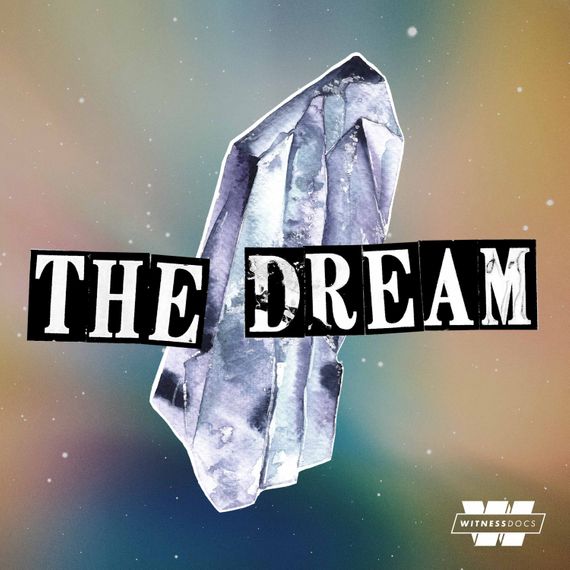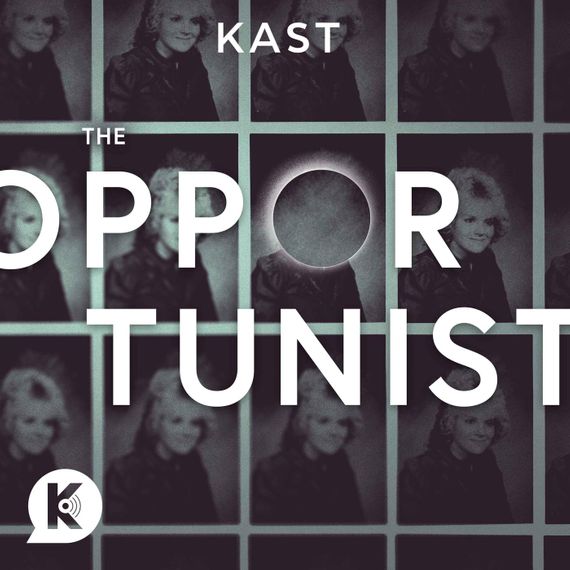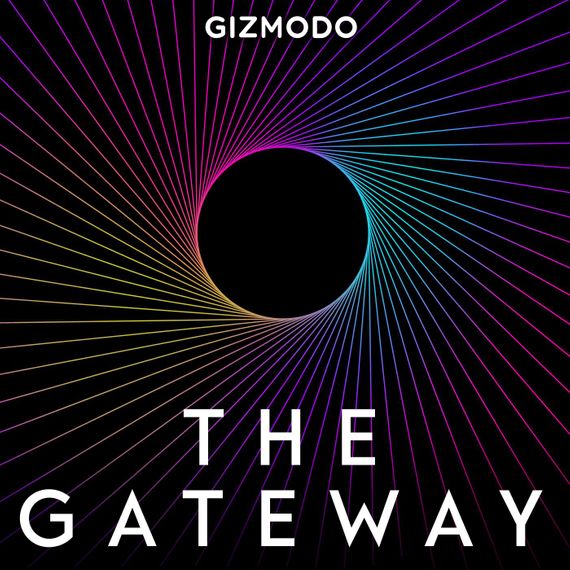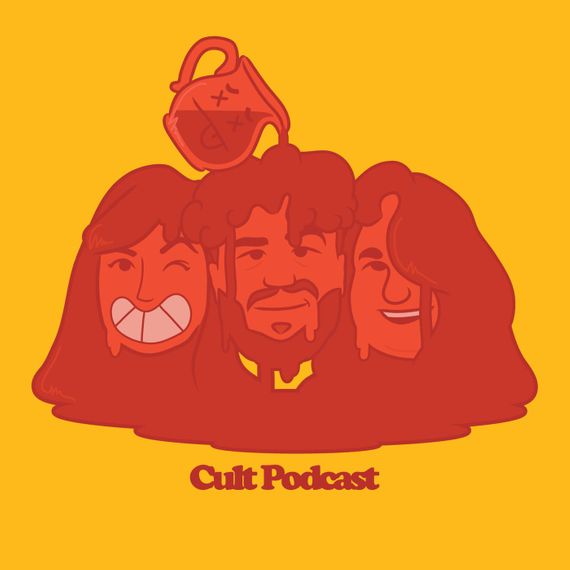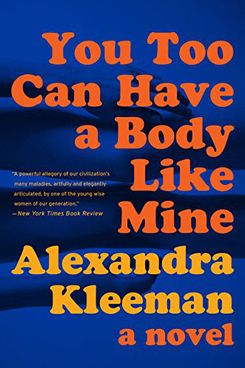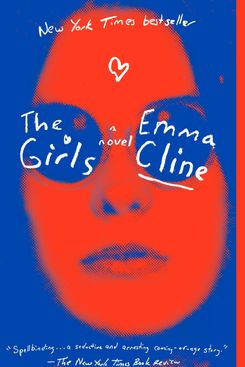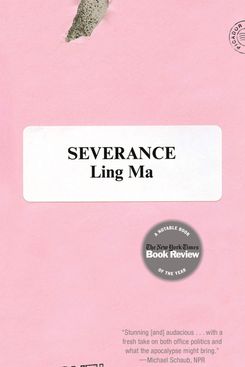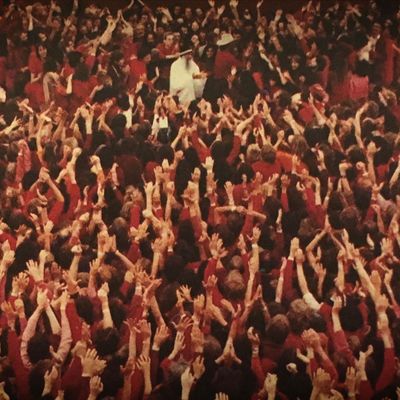
When I began writing my novel, The Atmospherians, I didn’t expect to release the book into a world obsessed with stories about cults — nor did I anticipate a global pandemic, but that’s another matter. The Atmospherians is a satire about two best friends who start a cult to reform problematic men, and over the course of writing it, I fell headfirst into everything I could find about cults: who forms them, who joins them, and who leaves them.
The popularity of cult and scam narratives has, predictably, coincided with one of the great scams of recent memory, when a shady real-estate tycoon grifted his way into the American presidency. As we continue to reckon with the damages caused over the last four years — which also served to highlight the structural harms perpetrated in this country long before 2016 — it makes sense that Americans would begin to obsess over mythmakers and grifters and cult leaders: those who promise us better futures while keeping all the gains to themselves. Americans are driven by equal parts admiration for hard work and easy answers. We believe in the long slog of determination and grit, but we also want everything immediately and conveniently. Cults capture what is most vulnerable about the American psyche: We work arduous hours without vacations or adequate health care and are left eager for someone to tell us what is true, whether it’s a boss or influencer or news anchor or political grifter or cult leader. We long for truth but don’t have the time to figure it out. Cult narratives capture both the allure and danger of living this way. They show us, from a safe distance, how easy it is to become what we most fear becoming: fools.
Below is a list of some of the most provocative and engaging books, movies, TV shows, and podcasts about cults that aided in my research, as well as a few titles that I’ve discovered since completing my book. Each one offers a unique perspective on the art of the scam.
Documentaries
Holy Hell (2016)
Will Allen joined the Buddhafield cult at age 22 when his mother made him leave home upon learning he was gay. He remained a member for 22 years, serving as the group’s primary filmmaker and propagandist. This documentary offers a tender portrait of the young people who fell under the spell of Buddhafield’s leader Michel Rostand, a middling actor and former ballet dancer. While this story might feel familiar on its surface — a charismatic manipulator takes advantage of people desperate for love and community — this documentary differs from others like it thanks to the insider footage it includes, and Allen’s personal reckoning with Rostand’s abuse.
Enlighten Us: The Rise and Fall of James Arthur Ray (2017)
James Arthur Ray was a prominent self-help figure in the early 2000s. He appeared on Oprah and in the movie The Secret and was admired by his followers for his intense commitment to the Law of Attraction — manifesting what you want into your life. In 2009, however, at a “Spiritual Warrior” retreat spearheaded by Ray, three attendees died while participating in a sweat-lodge exercise. Eighteen others were hospitalized and Ray was convicted of negligent homicide. This documentary follows Ray’s rise and fall, his pseudoscience and abuse, and it offers a glimpse into his ill-fated attempt to regain his career after being released from prison.
Deprogrammed (2015)
A cult documentary that focuses on the other side of the cult: What happens when someone decides to leave. This movie follows the life and career of Ted “Black Lightning” Patrick, an anti-cult crusader who started a movement in the early ’70s to help young people escape abusive cults with the aid of concerned parents and law enforcement. Patrick’s methods were controversial, and not everyone he works with benefits from his deprogramming techniques. But this documentary sheds light on the long, hard journey people face as they learn to think for themselves after being brainwashed.
Going Clear: Scientology and the Prison of Belief (2015)
A must-watch for anyone interested in the machinery of Scientology. This 2015 documentary is a modern classic, based on Lawrence Wright’s book of the same name. It offers a detailed history of Scientology’s founder, L. Ron Hubbard, and explores how the group holds power over its members. In gripping and intimate interviews, former members recount their abuse and exploitation during their time as part of the Church of Scientology. It also provides a rare window into the hierarchy system that serves as an integral part of keeping members invested in Scientology.
The Source Family (2013)
The Source Family is a cult documentary that feels relatively quiet compared to some of the others on this list. There is no question that the group’s leader, former actor and bodybuilder Father Yod, financially and emotionally exploited members of his California-based cult, the Source Family. And the documentary tackles the emotional consequences of that abuse on many of its members long after the cult dissolved. However, former members who speak in the documentary seem, at times, almost fond of their time in the Source Family, and those memories are what make this film stand out.
Nonfiction Books
I read this book knowing very little about Jim Jones and the Peoples Temple beyond the tragedy that occurred in Jonestown and gave us the phrase, “Drinking the Kool-Aid.” This biography of Jones shows how someone who appears to be driven by a commitment to progressive and radical ideas can unwittingly evolve into a selfish and manipulative force. While this is not a sympathetic portrait of Jones, it is a surprisingly nuanced look at the man that captures not only his unconscionable abuse but what seemed, at the time, like an authentic desire to do good in the world.
In Bunk, critic, poet, and New Yorker poetry editor Kevin Young argues that the hoax is a uniquely American phenomenon. This expansive historical book is less about individual cults than it is the mind-set and culture that set the foundation for so many of the cults that appear on this list. Young’s critical eye draws connections between the snake-oil salesmen and P.T. Barnums of adolescent America and contemporary impostors like James Frey and Rachel Dolezal. This comprehensive book is necessary reading for anyone interested in how cult leaders and hucksters construct the elaborate backstories that draw in their members.
This book differs greatly from many of the other texts on this list. Written by a clinical psychologist (Singer) and former cult member (Lalich), it provides a breakdown of the methodology practiced by cult leaders and scam artists. This book lacks many of the salacious true-crime details that define the cult genre today, but it is an excellent guide for anyone looking to understand the inner workings of cults and to see how different groups apply similar methods of control.
Hear me out. Wiener’s memoir about leaving book publishing to pursue a career in Silicon Valley exposes the insidious nature of corporations that, for years, have been telling us they have our best interests at heart. Though it would be a stretch to claim that the tech start-ups that appear in Wiener’s memoir are cults, the group rituals and collective thinking practiced by many of these companies, ostensibly in the service of an idyllic future, sound eerily similar to the missions of many of the cults included on this list. Wiener’s focus on the intrusive nature of corporate data collection highlights the danger of trusting your life to charismatic figures.
This long-overdue book about Charles Manson, the Tate–Labianca murders, and subsequent trial began, in 1999, as author Tom O’Neill’s three-month assignment for Premiere magazine. The extra time served O’Neill well. This book offers a rare reevaluation of the Manson story. It focuses on the role the CIA may have played in helping free Manson from prison and aiding him in attempting to bring about the Helter Skelter race war. This is a comprehensive and controversial study of a story we thought we already knew.
TV Series
Wild Wild Country
What more can be said about Wild Wild Country? This documentary took over every conversation when it premiered on Netflix in 2018. The six-part series details the life of Indian guru Bhagwan Shree Rajneesh and his followers, the Rajneeshees, who took over the small town of Antelope, Oregon, to create their intentional community, Rajneeshpuram. This expertly crafted series does an excellent job conveying the seductiveness of Rajneesh. The most compelling parts are the interviews with Rajneesh’s former assistant, Ma Anand Sheela, who shows little remorse over her actions and remains bitter over the dissolution of Rajneeshpuram.
Seduced: Inside the NXIVM Cult
Of last year’s two documentaries about the disturbing NXIVM cult led by Keith Raniere, this is, for me, the more successful. It provides a deep dive into the abuse performed by Raniere and, for that reason, can be especially difficult to watch. Seduced focuses primarily on the story of former member India Oxenberg, daughter of the actress Catherine Oxenberg, as she reckons with what she suffered during her time in NXIVM and tries to move on with her life. It is a gripping portrait of loss and regret and the ongoing psychological toll of falling victim to a cult.
Heaven’s Gate: The Cult of Cults
I first learned about Heaven’s Gate when I was a child, following the cult’s tragic mass suicide in 1997. It seemed strange that no major documentaries had been made about the cult, especially as the genre appeared to take off over the last decade. HBO’s 2020 miniseries Heaven’s Gate: The Cult of Cults looks at the peculiar relationship between the group’s founders, Marshall Applewhite and Bonnie Nettles, and features many interviews from past members who left the cult before taking their lives. The series provides an overdue look at one of the most notorious and harmful cults of recent memory.
The Cult of the Family
This documentary about a Melbourne-based cult called the Family, led by yoga teacher Anne Hamilton-Byrne, has received very little attention compared to some of the others on this list. But the story of the Family deserves a closer look. Hamilton-Byrne led a small group of middle-class Australians, a large chunk of whom were nurses and doctors, in regular hatha yoga classes. However, in 1968, Hamilton-Byrne acquired a property she named Kai Lama and proceeded to acquire 14 children — either taken from group members or illegally adopted with the aid of her followers. Hamilton-Byrne homeschooled and brainwashed the children until, in 1987, Kai Lama was raided by police and all the children were removed from the compound.
Helter Skelter: An American Myth
This recent miniseries, which premiered in 2020 on Epix, crosses over the well-trod terrain of Charles Manson and the Family. What makes this six-part series different is its focus on the emptiness of Manson, painting the cult leader as a fame-hunting con man who obtained followers by inflating his own mythology. This is a great place to start for people who want to know the story of the Manson Family but don’t want to invest years reading the countless books that have already been written about the cult.
Podcasts
The Dream
Another potential outlier on this list, The Dream is not a podcast about cults, per se. But its two seasons offer deep dives on subjects that use many of the same techniques and rhetorical tricks that are found in cults: mid-level marketing schemes and wellness culture. The Dream’s first season, which focuses on MLMs, does an excellent job charting the economic distress and structural conditions that drive people to invest their time and money in MLMs. Though MLMs are not cults, these groups do seduce their members into handing over large amounts of money in exchange for promises of getting ahead — albeit financially, rather than spiritually. This podcast exposes how practices of exploitation, found in so many cults, are reproduced in corporate settings.
The Opportunist: Sherry Shriner
Season one of The Opportunist, a podcast hosted by Hannah Smith that tells the stories of “regular people who turn sinister simply by being opportunistic,” casts its light on the story of Sherry Shriner, a Midwest mom and committed Christian who became an internet-cult leader. This story opens with Barbara Rogers’s murder of her boyfriend Steven Mineo. This seemingly clear-cut case becomes far more complicated when Rogers claims Mineo begged to be killed after Shriner kicked him out of her online cult. Shriner’s death complicates matters even more, and host Smith meticulously picks through years of Shriner’s radio show and interviews with former followers and cult experts to provide a detailed portrait of a wildly unlikely cult leader.
The Gateway: Teal Swan
This disturbing and comprehensive look at Teal Swan, a New Age guru who recruited followers through her hypnotic YouTube videos, asks whether Teal’s controversial methods may have driven some of her followers toward suicide. Host Jennings Brown is a consummate researcher who goes so far as to attend Teal’s events in person — pre-lockdown, of course. There are no easy answers in this podcast. Past and current followers of Teal’s appear on the series and provide conflicting narratives about the role she played in the deaths of her followers. As a listener, it is fascinating — and frustrating — to hear the people grieving loved ones lost to suicide after their run-ins with Teal continue to defend the person who might have encouraged the suicide.
Cult Podcast
A rare cult podcast that doesn’t take itself too seriously! Described as “A podcast. About cults. Duh,” this surprisingly humorous look at unsurprisingly dangerous cults is hosted by comedians Paige Wesley, Armando Torres, and Andrea Guzzetta. The good-natured rapport between the three comedians offers a much-needed sense of levity as they describe inner workings of infamous cults like Charles Manson’s the Family to the relatively lesser-known groups like Bethel Church. They also do a great job showing the cultlike tendencies of groups we might not readily think of as cults. For instance, their dive into the Bundy Standoff of 2016 broadens traditional definitions of cults to include the right-wing libertarian mind-set that continues to endanger people online and off.
IndoctriNation
IndoctriNation is a cult podcast, but it takes a different perspective from many of the other podcasts that appear on this list. This show is hosted by licensed therapist Rachel Bernstein, an expert in helping people leave cults and abusive relationships. In her detailed interviews, she talks to guests about their life experiences and what led them to join cults — and, eventually, the work they put in to gain the courage to leave. These harrowing interviews take attention away from cult leaders and place it where it belongs: on the victims who deserve to have their stories told.
Novels
Kleeman’s You Too Can Have a Body Like Mine explores the sinister emptiness of wellness culture when taken to its extremes. This book, narrated by a woman named A, follows A’s relationship with her roommate, B, and boyfriend, C. Though Kleeman’s book doesn’t begin as a cult novel, this psychological thriller about identity and imitation deceptively expands into a cult novel in its final section, when A infiltrates a mysterious community of people who dress like ghosts and live off airy snack cakes.
In The Incendiaries, R.O. Kwon writes about the thorny overlaps between religious extremism, personal mythmaking, and fractured love. The book was inspired by Kwon’s personal loss of faith, and that reckoning fuels much of the novel. This powerful novel of grief and desperation is, at its core, a book about the narratives we construct in order to make sense of our lives, from the self-mythologizing of an extremist cult leader to the presumptuous stories told by the book’s narrator, Will Kendall, as he tries to understand what went wrong with his girlfriend, Phoebe.
On its surface, The Water Cure might not seem like a cult novel. This sci-fi fairy tale evolves into a feminist-revenge novel as it shifts between the perspectives of three sisters following the death of their father, The King. However, this book’s eerie portrayal of a small island where The King isolates his wife and daughters borrows a lot from other cult books and movies on this list. The fairy-tale genre allows Mackintosh to deftly turn male toxicity into a cult driven by insecurity and thirst for power. This novel will make you reconsider the languages and customs that families take for granted when they appear to act in the interest of love.
Cline’s debut novel skims the edges of the Manson family and the girls who recruit for the cult. This evocative and lyrical book follows a young woman drawn close to the cult as she tries to escape a troubling situation at home. Cline is an excellent prose stylist, and the great pleasure of The Girls arises from spending time inside of her sentences and in her narrator’s mind. This novel captures the seductive appeal of losing yourself as you’re drawn into the larger and dangerous world of adulthood.
Ling Ma’s Severance is one of those novels that fits into just about every category: It’s an office novel, a capitalist satire, a tender story of a mother-daughter relationship, a zombie thriller, and, finally, a cult novel. The final section of this book, which takes place in an abandoned shopping mall where a group of survivalists have started a cult, offers a smart and funny critique of how people might react in the face of capitalism’s horror-fueled collapse.
